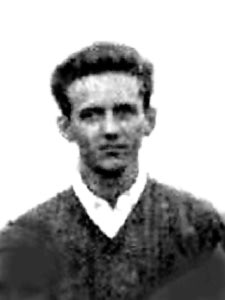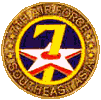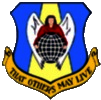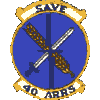|
John Winfred Goeglein
Major
40TH ARRS, 3RD AIR RESCUE GROUP, 7TH AF United States Air Force Kirkwood, Missouri July 10, 1930 to June 30, 1970 JOHN W GOEGLEIN is on the Wall at Panel W9, Line 104 |
  |

|



| |
|
MOVING
Moving means a great many things and The Moving Wall was just that.
From one who wore his MIA bracelet, |
|
A memorial from one
Missy LaBelle |
The MissionOn 30 June 1970, Captain William S. Sanders, pilot, and SFC Albert E. Mosiello, observer, were conducting a visual reconnaissance mission in an OV-10A (Hull number 3807, call sign "Nail 44"). Due to mission requirements for handheld photography NAIL 44 was flying below the usual minimum of 1500 feet. The aircraft was taken under fire and hit by a 37mm AAA shell in its left side adjacent to the pilot's position. With his pilot unresponsive and the OV-10 no longer airworthy, Mosiello ejected.The OV-10 had gone down in heavily forested, rugged mountains about 3 miles west of the Lao/South Vietnamese border and 12 miles south of the demilitarized zone (DMZ). A second FAC in the vicinity heard SFC Mosiello's emergency beeper and made radio contact with the downed observer. He then initiated Search and Rescue operations. A HH-53C JOLLY GREEN helicopter from the 40th Air Rescue/Recovery Squadron (ARRS) at Udorn RTAFB, Thailand, was immediately dispatched to the area of loss. The HH-53 crew consisted of
Although nightfall was approaching, a second effort was staged using a helicopter from Da Nang and A-1E SANDYs for fire suppression. SFC Mosiello was picked up. In his debriefing statement, SFC Mosiello stated a belief that Captain Sanders had been killed by the AAA hit and that he did not see Sanders eject or another parachute deploy. Search efforts for the Captain Sanders and the HH-53 crew continued through the next day, but no beepers were heard, no contact with the downed aircrew was made, and there were no visual sightings of survivors. SAR efforts were terminated and the six men were listed as Killed in Action/Body Not Recovered. In December 1992, a US/Lao team surveyed and excavated the HH-53 crash site. Human remains were recovered and on 7 March 1995 the US government identified the remains as those of the five HH-53 aircrewmen. Efforts to locate the OV-10 crash site were unsuccessful due to the terrain and dense jungle. |
| Contact Us | © Copyright 1997-2019 www.VirtualWall.org, Ltd ®(TM) | Last update 08/15/2019. |